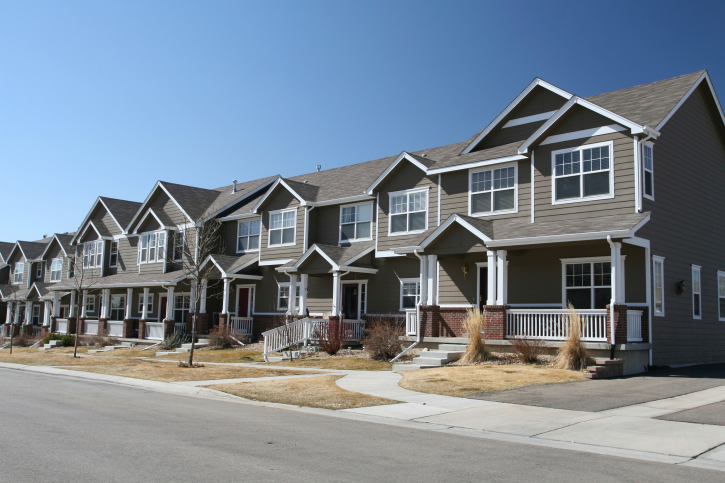 While making a real estate purchase can be filled with many questions, buying to invest in a long-term property can be even more confusing. If you’re looking into investing in real estate and wondering what variables to consider, here are a few tips that you’ll want to keep in mind before deciding on an investment property.
While making a real estate purchase can be filled with many questions, buying to invest in a long-term property can be even more confusing. If you’re looking into investing in real estate and wondering what variables to consider, here are a few tips that you’ll want to keep in mind before deciding on an investment property.
Be Aware Of The Market You’re Buying Into
Since you’ll need to be aware of what other people are looking for in a property if you’re diving into real estate to invest, you’ll want to carefully consider the neighborhood and city that you’re buying in and think about what the future holds. While becoming knowledgeable about home prices in the area you’re thinking of buying is a must, you’ll also want to think about market projections, trendy new neighborhoods and what the appeal will be to renters or buyers of the home you’re contemplating.
Consider A Diamond In The Rough
It might seem like a home that is a little rough around the edges is going to be a high-maintenance endeavor that doesn’t balance out in the end, but a fixer upper of a place may be end up being the best option. While you may need to renovate a little here and there to unearth some of its natural features, improvements to a home with a good structure in a good neighborhood can be more economical than spending more on a home that instantly appeals. It can also provide a better return on your investment in the long-term.
Stay Within Your Spending Means
When considering an investment property, it can be quite easy to get derailed and think about what you’ll be making instead of the expenditure of the initial investment. However, it’s important to determine beforehand that what you’re choosing to afford is going to be manageable in case you have to swing it on your own. By determining whether or not it’s an affordable expense, you can have a successful investment that will balance out in your favor at the end of the day without having to worry about sinking beneath the cost.
There are many questions that can come along with choosing to invest in real estate, but by carefully considering the market and keeping your purchase at a reasonable price point, you may have a long-term moneymaker on your hands.
 If you’re entering the real estate investment market for the first time, you’re embarking on a great adventure – and with a solid plan, you can turn a tidy profit on your investment.
If you’re entering the real estate investment market for the first time, you’re embarking on a great adventure – and with a solid plan, you can turn a tidy profit on your investment. Entering into the real estate market requires time and monetary commitment. Depending on the purpose for purchasing rental property determines whether one should invest in a single family or multi-family dwelling. In either case, one should prepare short or long term goals, be cognizant of his or her financial health and monetary comfort zone, and conduct a comparative market analysis before considering a real estate investment.
Entering into the real estate market requires time and monetary commitment. Depending on the purpose for purchasing rental property determines whether one should invest in a single family or multi-family dwelling. In either case, one should prepare short or long term goals, be cognizant of his or her financial health and monetary comfort zone, and conduct a comparative market analysis before considering a real estate investment. When a homeowner is preparing to sell a home, it can be beneficial to determine the target audience that is most likely to be interested in the property as an important initial step. In some cases, it is advantageous for a homeowner to position a home as a great rental property or investment property, but this requires the right strategy. By adopting a few niche marketing steps, homeowners can work with their trusted real estate agent to market a property appropriately.
When a homeowner is preparing to sell a home, it can be beneficial to determine the target audience that is most likely to be interested in the property as an important initial step. In some cases, it is advantageous for a homeowner to position a home as a great rental property or investment property, but this requires the right strategy. By adopting a few niche marketing steps, homeowners can work with their trusted real estate agent to market a property appropriately. Size matters when you are buying a new home. Whether you plan to expand your family, need more room for your stuff, or are concerned with resale value, you want to get the most space for your money. Also, if you want to add a feel of luxury to your home, one of the best ways to do it is to create open spaces rather than cramming all your furniture in rooms so tiny you can barely walk around without knocking something over.
Size matters when you are buying a new home. Whether you plan to expand your family, need more room for your stuff, or are concerned with resale value, you want to get the most space for your money. Also, if you want to add a feel of luxury to your home, one of the best ways to do it is to create open spaces rather than cramming all your furniture in rooms so tiny you can barely walk around without knocking something over. If you’ve been thinking about investing in a real estate project you may have considered buying a distressed house or two at a steep discount in order to fix them up and sell them at a higher price. This is known as “flipping”, and in today’s post we’ll share a quick guide to flipping homes and how to get started with this type of real estate investing.
If you’ve been thinking about investing in a real estate project you may have considered buying a distressed house or two at a steep discount in order to fix them up and sell them at a higher price. This is known as “flipping”, and in today’s post we’ll share a quick guide to flipping homes and how to get started with this type of real estate investing.